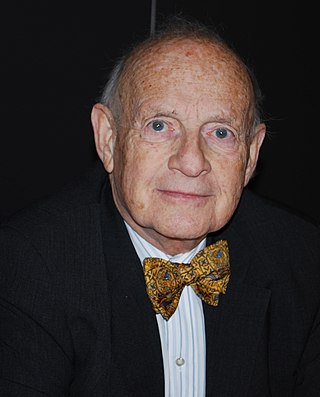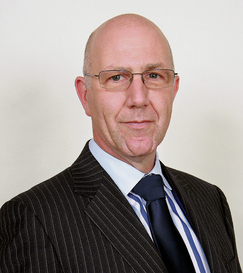Dispute resolution or dispute settlement is the process of resolving disputes between parties. The term dispute resolution is conflict resolution through legal means.

Mediation is a negotiation facilitated by a third-party neutral. It is a structured, interactive process where an impartial third party, the mediator, assists disputing parties in resolving conflict through the use of specialized communication and negotiation techniques. All participants in mediation are encouraged to actively participate in the process. Mediation is a "party-centered" process in that it is focused primarily upon the needs, rights, and interests of the parties. The mediator uses a wide variety of techniques to guide the process in a constructive direction and to help the parties find their optimal solution. A mediator is facilitative in that they manage the interaction between parties and facilitates open communication. Mediation is also evaluative in that the mediator analyzes issues and relevant norms ("reality-testing"), while refraining from providing prescriptive advice to the parties. Due to its voluntary nature, a person cannot be compelled to use mediation to resolve their dispute. However, a suggestion from the Court may be difficult to resist.
Online dispute resolution (ODR) is a form of dispute resolution which uses technology to facilitate the resolution of disputes between parties. It primarily involves negotiation, mediation or arbitration, or a combination of all three. In this respect it is often seen as being the online equivalent of alternative dispute resolution (ADR). However, ODR can also augment these traditional means of resolving disputes by applying innovative techniques and online technologies to the process.

Arbitration is a formal method of dispute resolution involving a neutral third party who makes a binding decision. The third party neutral renders the decision in the form of an 'arbitration award'. An arbitration decision or award is legally binding on both sides and enforceable in the courts, unless all parties stipulate that the arbitration process and decision are non-binding.

The Chartered Institute of Arbitrators is a professional organisation representing the interests of alternative dispute resolution (ADR) practitioners. Founded on 1 March 1915, it was granted a royal charter by Queen Elizabeth II in 1979.
The Civil Mediation Council (CMC) is the recognised authority in England and Wales for all matters related to civil, commercial, workplace and other non-family mediation. It is the first point of contact for the Government, the judiciary, the legal profession and industry on mediation issues.

Frank E. A. Sander was an American professor emeritus and associate dean of Harvard Law School. He pioneered the field of alternative dispute resolution and is widely credited with being a father of the field in the United States as a result of his paper, The Varieties of Dispute Processing, presented at the Pound Conference in 1976 in Minneapolis, Minnesota. Sander's book, Dispute Resolution: Negotiation, Mediation, and Other Processes, which he coauthored with Stephen B. Goldberg, Nancy H. Rogers, and Sarah Rudolph Cole, is used in law schools throughout the United States.
Alternative dispute resolution (ADR), or external dispute resolution (EDR), typically denotes a wide range of dispute resolution processes and techniques that parties can use to settle disputes with the help of a third party. They are used for disagreeing parties who cannot come to an agreement short of litigation. However, ADR is also increasingly being adopted as a tool to help settle disputes within the court system.
The Arbitration Roundtable of Toronto is made up of several litigators, academics, arbitrators, and mediators from the Greater Toronto Area. The group promotes arbitration as an alternative method of conflict resolution over litigation, especially in commercial suits. Members include commercial litigators from Toronto law firms including some of the Seven Sisters of Bay Street. Each member has experience and interest in promoting commercial Arbitration. The group dedicates its time to encouraging this form of Dispute resolution through seminars, papers, and talks.

Arnold M. Zack has served as an arbitrator and mediator of labor management disputes since 1957. Born on October 7, 1931, in Lynn Massachusetts, he is a graduate of Tufts College, Yale Law School and the Harvard University Graduate School of Public Administration. He was a Fulbright Scholar, a Wertheim Fellow, President of the National Academy of Arbitrators and member of the College of Labor and Employment Lawyers. He served as a judge of the Asian Development Bank Administrative Tribunal and was President of the Tribunal since 2010. He also served and taught as senior research associate at the Labor and Worklife Program of Harvard Law School and the Harvard Trade Union Program since 1985.
Institution Quraysh for Law & Policy, also known as iQ, is a transnational law think-tank with offices in London and with a focus on promoting the rule of law globally. The institution's history goes back to the Arab World, in particular the states of the Gulf Cooperation Council. It advised regional, and international corporations operating in the region, in addition to policy work with national governments, sovereign entities, and international non-governmental organisations.
United States Arbitration Association (USADR) is an alternative dispute resolution organization headquartered in Denver, Colorado. USADR offers mediation to parties who have filed for arbitration through USADR's national forum.
The Arab Chamber of Commerce and Industry (ARABCCI) or (ArabCham) in Hong Kong was established in 2006 to promote commercial ties between Hong Kong and Greater China with the Arab world. The Arab Chamber of Commerce is a not for profit organisation, The President is Edwin Hitti.

JAMS, formerly known as Judicial Arbitration and Mediation Services, Inc. is a United States–based for-profit organization of alternative dispute resolution (ADR) services, including mediation and arbitration. H. Warren Knight, a former California Superior Court judge, founded JAMS in 1979 in Santa Ana, California. A 1994 merger with Endispute of Washington, D.C. made JAMS into the largest private arbitration and mediation service in the country. It is one of the major arbitration administration organizations in the United States. As of 2017, JAMS has 27 resolution centers, including its headquarters in Irvine, California and centers in Toronto and London. JAMS specializes in mediating and arbitrating complex, multi-party, business/commercial cases.

Maxwell Chambers is an integrated alternative dispute resolution (ADR) complex located in Singapore. It provides hearing rooms and facilities for the conduct of ADR hearings in Singapore, as well as the regional offices of a number of ADR institutions, arbitrators, and international arbitration practitioners.

Allan Jeffrey Stitt is a chartered Canadian arbitrator, mediator and film producer. He is the president and CEO of ADR Chambers, a Canadian arbitration and mediation organization. Stitt is the recipient of the 2006 Ontario Bar Association Award of Excellence in Alternative Dispute Resolution. In 2022, Stitt was awarded an honorary Doctor of Laws from the University of Windsor Faculty of Law. As a movie executive producer, Stitt has also contributed to films including The Layover, The Birth of a Nation, Into the Forest, I Saw the Light, and Ithaca.
Madeline Kimei is a Tanzanian legal expert, arbitrator and mediator practicing commercial and corporate law. She currently serves as President of the Tanzania Institute of Arbitrators (TIArb). She is considered the first woman in Tanzania to start an online platform dealing with dispute resolution called iResolve which she launched in 2015. She is specialized in providing corporate and commercial legal support, counsel for domestic and international arbitration, commercial mediation and dispute management specialist.
The Alternative Dispute Resolution Institute of Alberta (ADRIA) is a non-profit organization with offices in Edmonton, Alberta, that provides Alternative Dispute Resolution (ADR) services to its members and the public. It was originally founded in 1982, encapsulated within the Alberta Arbitration and Mediation Society (AAMS), but the two organizations split in 2012 so that AAMS could continue to exist with charitable status, while ADRIA emerged and carried on the membership based non-profit work. ADRIA's mandate is to promote the use of ADR while offering education and training to individuals across Alberta and the Northwest Territories in negotiation, mediation, arbitration, and restorative practices. The organization has been used as a source for ADR information, resources and expertise in a range of both private and government matters. This now includes having a key role in the annual Conflict Resolution Day, hosted on the third Thursday of every October since 2007, which seeks to promote awareness for the utility of ADR practices. In 2013 ADRIA helped provide input for the review of the Condominium Property Act with regards to dispute resolution issues.
The ADR Institute of Canada (ADRIC), is a non-profit organization that offers alternative dispute resolution services to its members and the public across the country. It is one of the leading authorities on ADR in Canada, offering highly respected professional designations for both mediation and arbitration, with plans for a mediation and arbitration (Med-Arb) designation in the works. ADRIC has also created an established set of ADR rules and codes, outlining the principles by which its affiliated ADR practitioners commit themselves to following. Beyond promoting ADR and networking and training individuals in ADR practices, ADRIC presides as the national body of the seven regional affiliate bodies of the ADR Institutes in Canada:

David Alan Hoffman is an American attorney, mediator, arbitrator, author, and academic. He is the John H. Watson, Jr. Lecturer on Law at Harvard Law School. He is also the founder of Boston Law Collaborative. His TEDx talk on Lawyers as Peacemakers describes his decision to discontinue courtroom advocacy and focus exclusively on mediation, arbitration, and Collaborative law.







